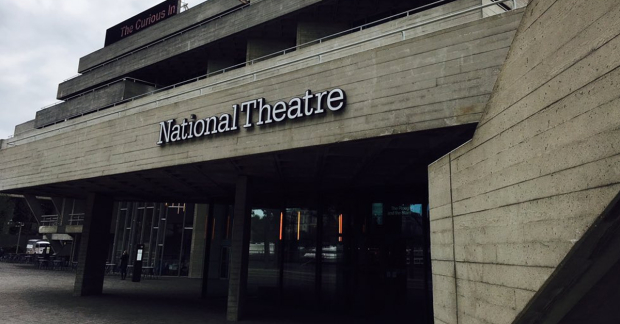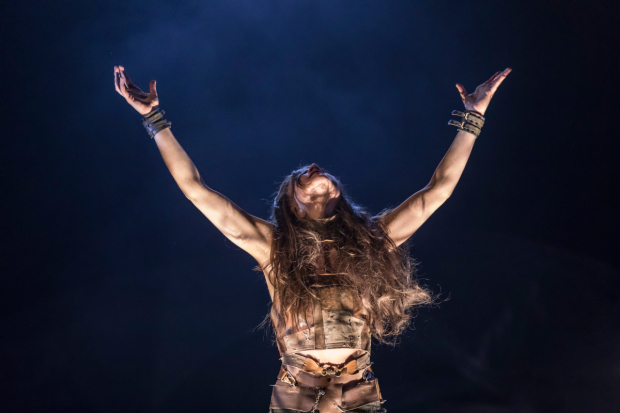How do you solve a problem like the Olivier?

How do you solve a problem like the Olivier? Rufus Norris will no doubt have spent the last few weeks turning that question over in his mind. His summer has been a sh*tshow second only to Theresa May’s and, like the Prime Minister, Norris’ seemingly strong and stable ship went to pieces over the course of three weeks. With Salome and Common, it took back-to-back critical hammerings in its biggest space. The unhappy result is a double-dud summer.
The Olivier is crucial to the National’s well-being. Artistically, it’s a cornerstone of the NT’s mission. It’s part of what makes that building unique: a space unlike any other and a huge public platform. Financially, its size means the organisation rotates around it. Its 1,150 seats make up almost half the National’s capacity. If the NT needs to sell 2000 seats a night, as received wisdom has it, it’s hard to achieve that without a fully-functioning Olivier. The dent of this summer will doubtless show up in the statistics.
If it’s notoriously difficult to direct in the Olivier, writing for it is doubly difficult
It is, therefore, impossible to understate the risk of putting new work into that space. It’s not the norm. Nicholas Hytner only started eight entirely new plays, discounting adaptations, in the Olivier over his 12 years in charge. He had his flops too, as anyone who saw the shipwreck that was Fram will tell you. Trevor Nunn managed only two in six years, while Richard Eyre‘s decade had six – all by either Tony Harrison or David Hare.
There’s an increased emphasis on new work these days, but in little more than two years, Norris already has his third new play scheduled. Rory Mullarkey’s Saint George and the Dragon, set down for the autumn, follows Common and Wonder.land. Beyond that, more than half of his Olivier shows have been new in some way, from Carol Ann Duffy’s version of Everyman to Simon Stephens’ update of The Threepenny Opera.
Artistically the Olivier is as unforgiving as Michael Corleone
No other theatre takes such a risk. Chichester Festival Theatre doesn’t programme new plays in its 1200-seat main space, and it's rare to see new writing in the Royal Shakespeare Theatre outside of Christmas. When the Globe produced new plays, under Dominic Dromgoole, they tended to play fewer than 15 performances – half the shortest Olivier run.
Artistically, it’s as unforgiving as Michael Corleone. If it’s notoriously difficult to direct in the Olivier – an expanse of stage with an iffy acoustic – writing for it is doubly difficult. In 40 years, very few playwrights have made it a home – Harrison, Hare and Alan Ayckbourn, maybe Howard Brenton too – and it’s had more than its fair share of problem plays. Ask Peter Hall about Jean Seberg: "the most notorious flop of my career."
The Olivier needs big, muscular plays that can throw punches and take knocks
More than anything, the Olivier demands overt theatricality. It needs big, muscular plays that can throw punches and take knocks. Hall, again, summed it up: "The Olivier is a theatre for dialectical discussion and big epic statements. Irony, ambiguity, delicacy and the eloquence of the unsaid are very difficult to convey in it." Those, unfortunately, are the hallmarks of much contemporary playwriting. Instead, it demands different approaches: big casts, epic subjects, expansive stories. It needs strong structural scaffolding and, as Andrzej Lukowski pointed out in The Stage, a visual vocabulary like War Horse‘s puppets or Frankenstein‘s physicality.
What that neglects, however, is language – and it’s this that Norris and co. have latched on to. Ordinary, everyday speech doesn’t stand up to the Olivier. It needs Greek tragedies, restoration comedies and poetic oddities. Chekhov can survive at this scale – just. Ibsen really can’t. New writing has to follow suit. Tony Harrison’s verse dramas used earthy rhythms and rhymes. David Hare’s political plays deploy the language of the public realm. David Eldridge tapped into the patter and clatter of Romford market.
This, really, is where Common and Salome came a cropper. Both sought a distinctive, outsized vernacular – DC Moore’s rustic burr, Yael Farber‘s biblespeak – and both got lost in translation. In an increasingly visual culture, that might be the biggest risk of all, but it’s one the National can’t afford not to take.











